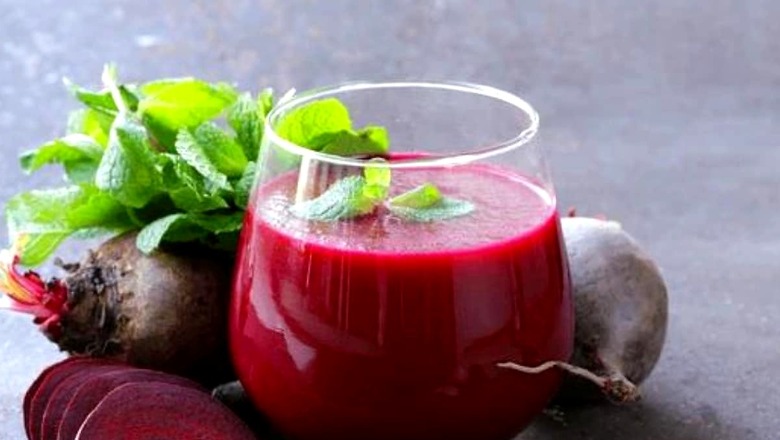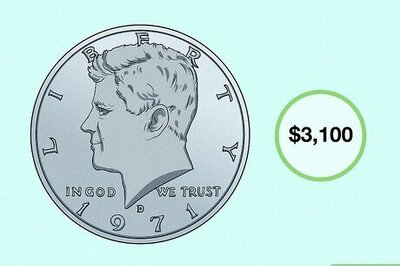
views
All women have experienced those tough days when getting out of bed is a struggle. Yes, we are talking about periods. The discomfort accompanied by cramps makes it a challenging affair. But what if there’s a natural way to ease those symptoms? Imagine something that not only helps with cramps but also boosts your energy. Sounds like just what we need, right?
Well, there is an answer – Beetroot Juice. Certified Nutritionist and Nutrigenomic Advisor Disha Sethi recently shared a quick recipe on her Instagram with the caption, “Juice for Menstruation.”
View this post on Instagram
During the menstrual cycle, women tend to lose blood, which can lower iron levels and lead to anaemia. To prevent that, drinking beetroot and carrot juice is the best choice.
Ingredients:
- 2-3 Raw Beetroot
- 2 carrots
- 1-inch ginger
- 1/2 lemon
Method:
- Wash all the vegetables under running water.
- Peel and slice the beetroot, ginger and carrot into long pieces.
- Add all the ingredients to the blender and prepare a juice.
- Squeeze half a lemon into the prepared juice, stir well and pour it into a chilled serving glass. Sip immediately.
Benefits of Consuming Beetroot And Carrot in Menstrual Pain:
During menstruation, fatigue is a very common issue for many women. It is often caused by the loss of iron through blood. In such cases, beetroot offers a natural solution to combat this as it is a rich source of iron. Iron is very important for overall health as it helps in the production of haemoglobin, which carries oxygen to body tissues.
Beetroot contains betaine, which has anti-inflammatory effects that can help manage the pain and discomfort associated with menstrual cramps. It also helps to reduce inflammation and may act as a mild pain reliever. Therefore, it’s recommended to drink beetroot juice during periods.
Carrots are rich in beta-carotene and vitamin A, powerful antioxidants that safeguard your cells and reduce the risk of certain diseases. It also helps regulate blood flow during periods. To enjoy the benefits of carrot juice without consuming excessive vitamin A or beta-carotene, limit your intake to half a glass, or 4 ounces, per day.

















Comments
0 comment